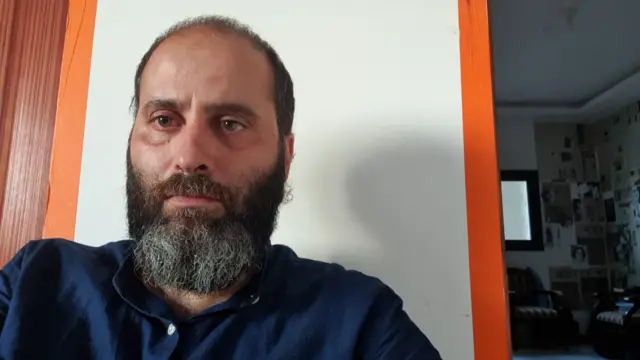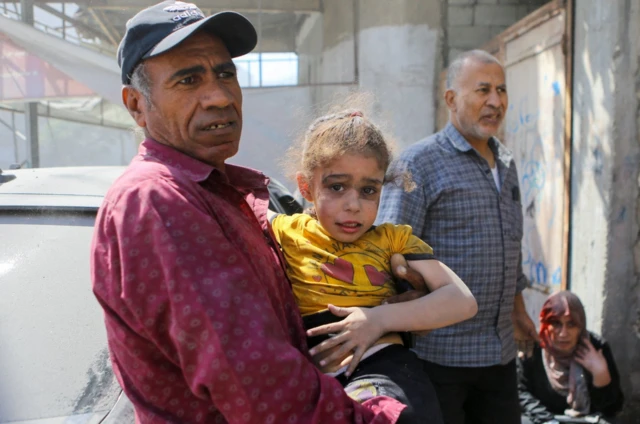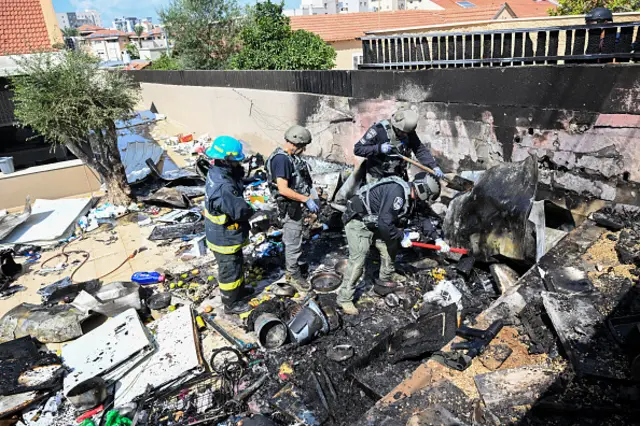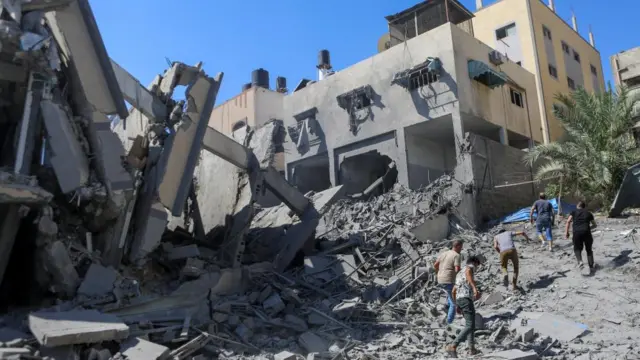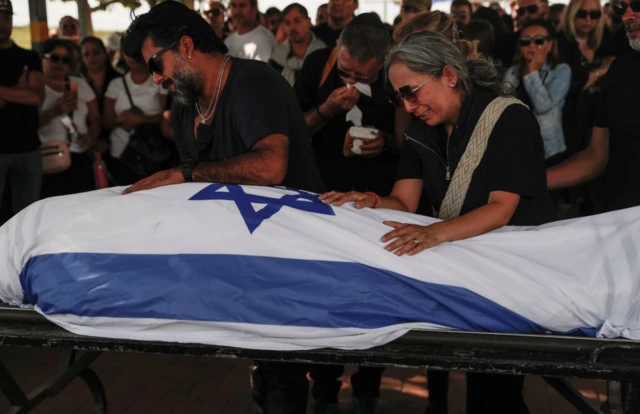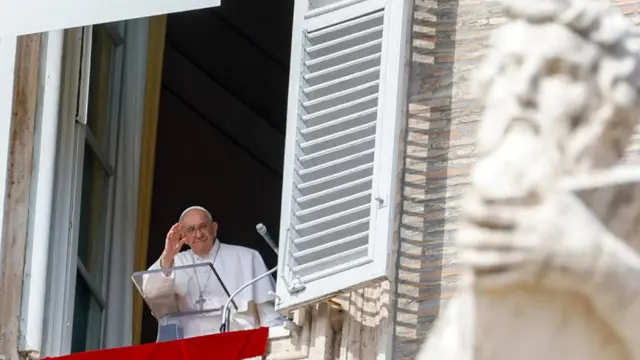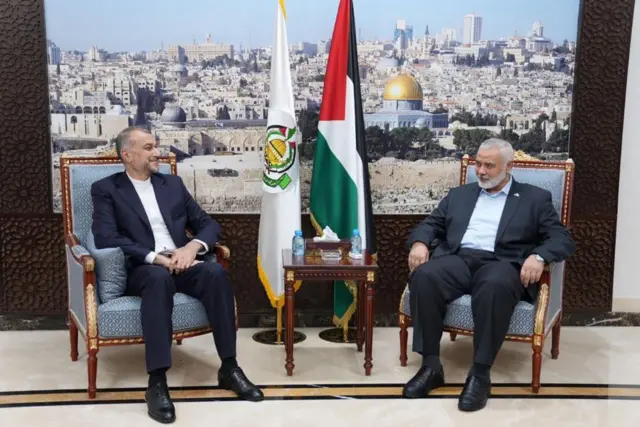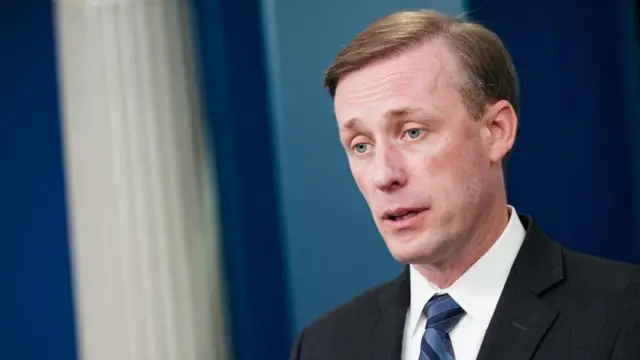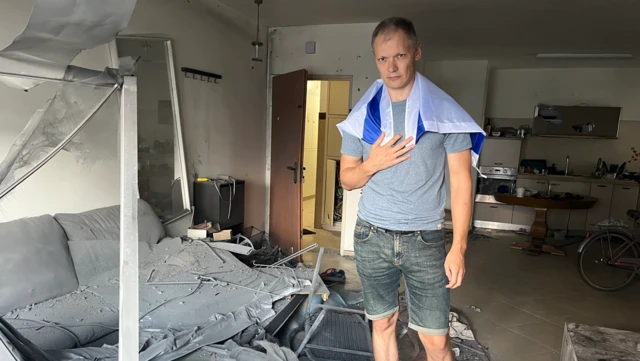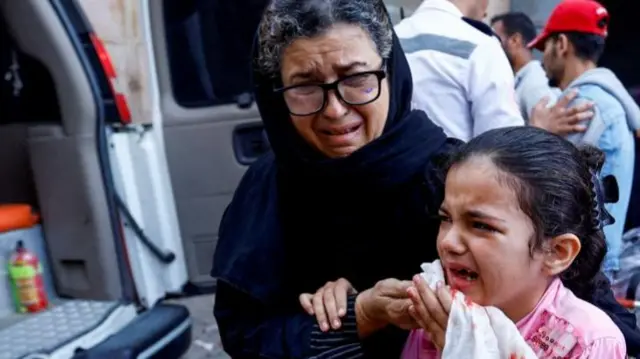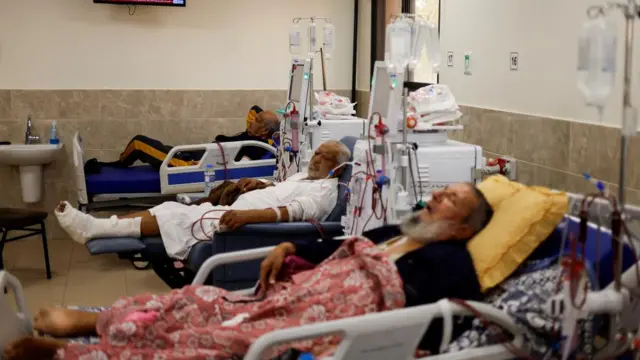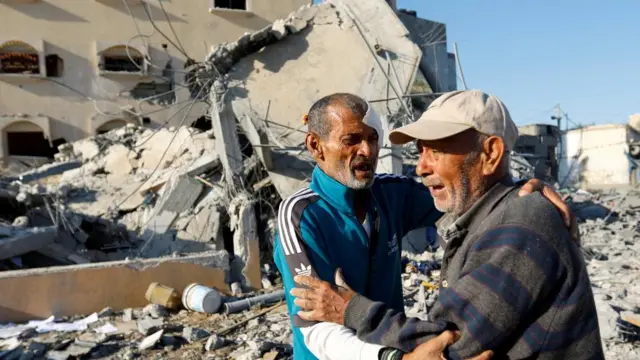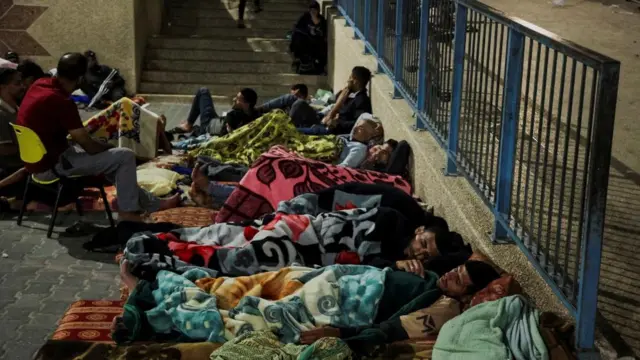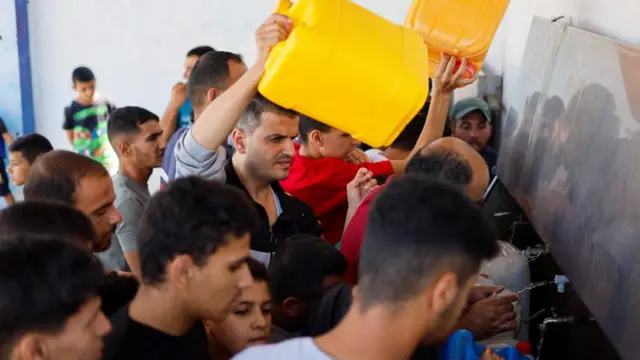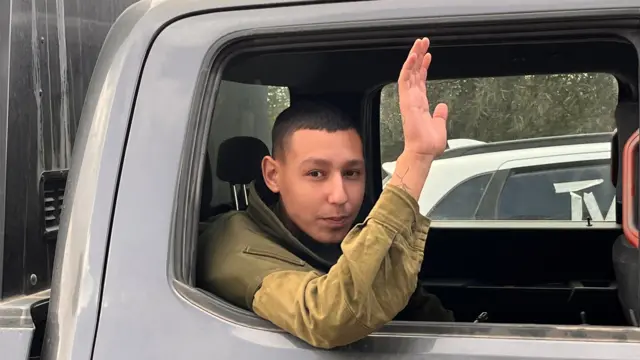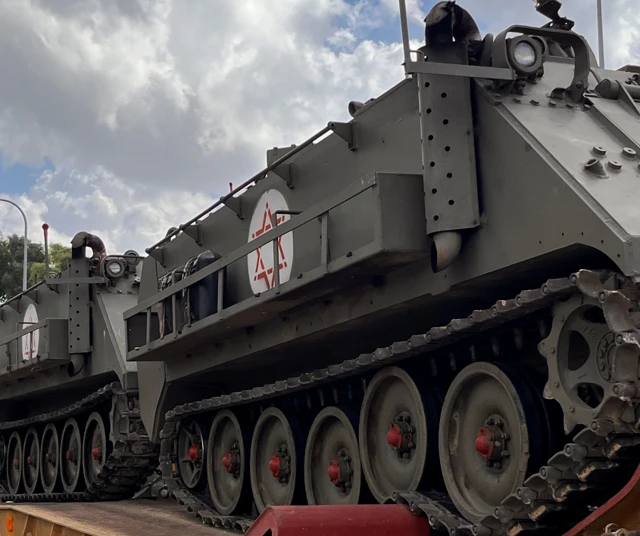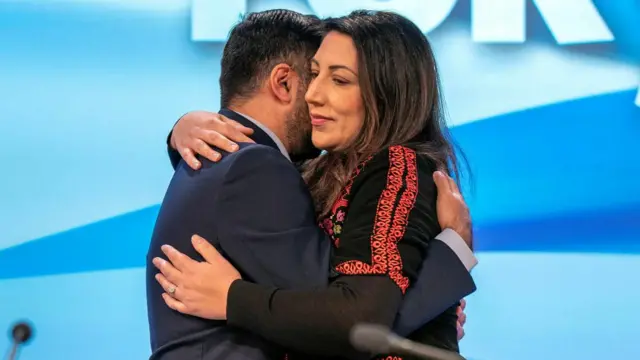'In Gaza, we count our age in wars'published at 15:38 BST 15 October 2023
More from Mohammed Ghalayini, a British-Palestinian citizen who is sheltering in Gaza with relatives, including his two half-brothers.
Despite only being teenagers he says they have already seen their share of conflict. He adds that the continued bombing "frays the nerves".
"There was very intense bombing today till around noon. The house was shaking. Last night there was bombing too. I was trying to keep a bomb diary but lost track," Ghalayini says.
He says his brothers are "holding up ok, but every day is a psychological trauma for them. And at times their resilience betrays that trauma."
One of them turned 13 yesterday, but it wasn't much of a party. "We sang him happy birthday and I got him a chocolate bar. My friends from Manchester sent him a group photo," Ghalayini says.
"A Palestinian writer wrote that in Gaza we count our age in how many wars we've been through. Everyone here... is at least five wars old."

